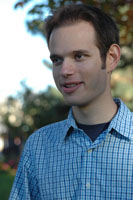Epilepsy Medication Use in Moms Linked to School Troubles for Teens
Women with epilepsy face an uncomfortable position when they decide to have children, as either seizures or the medications to prevent them are suspected of hurting the fetus. But a new study gives some potentially reassuring news.
A study from researchers at the Karolinska Institute in Sweden examined the records of 1,235 children born to mothers with epilepsy between 1973 and 1986. The researchers looked at the treatments the mothers received and the school records at age 16 for the children.
The researchers found the children of mothers receiving polytherapy a combination of drugs had 3 times greater odds of not finishing school, compared with their peers. However, the children of mothers who were only taking a single medication did not seem to be more likely not to complete school than their peers, although they were less likely to "pass with excellence."
"The real important finding is the one that women on one drug, who have mild epilepsy, are having normal kids," said Dr. Shlomo Shinnar, a member of the American Academy of Neurology and a neurologist at the Albert Einstein College of Medicine in New York. Shinnar was not involved with the study.
Childbearing is an important consideration when prescribing drugs to treat epilepsy, because of concerns about the drugs' effects .
"We have already had, for a long time, concern over treating women who are pregnant with anti-epileptic drugs," Shinnar told My Health News Daily. "Conversely, there's also concern about women who are pregnant having seizures."
Seizures can injure the fetus, and so need to be treated in pregnant women.
Get the world’s most fascinating discoveries delivered straight to your inbox.
"This is one of those diseases where it's not an option to tell people that drugs are no good and not to take drugs," Shinnar said.
Certain medications are recognized as being problematic for pregnant women (they were not specifically examined by the Karolinska study), and so, Shinnar said, physicians consider other drugs when first treating a girl or young woman whether she is planning on having children or not so that she will not need to switch medications once she becomes pregnant.
But problems may arise if a woman's epilepsy does not respond to treatment with those drugs.
"If one doesn't control your seizures, and the other does, it's unclear, because having seizures worsens your outcome," Shinnar said.
Women who do not respond to any single drug may face a problem, as polytherapy has been associated with problems in the past, which were confirmed by this study. But the cause and effect is unclear.
"It's difficult to tease out how much of it is polytherapy and how much of it is that people with worse epilepsy are on polytherapy," said Shinnar.
A strength of the study noted by outside researchers was that it was on a population level meaning it involved a large groups of children and looked at their average risk for having problems in school . However, that gave it some limitations.
When it came to measuring an individual child's risk, "We can't understand what the risk is, what the individual factors contributing are," said Dr. Kimbor Meador, director of the Emory Epilepsy Center in Atlanta.
Without individual medical records, he said, it is difficult to tease out factors such as the number of seizures the mother may have had during pregnancy, or the effects of certain medications that were given, which may have caused problems on their own. The researchers looked at only two medications separately from the group of patients taking a single drug and while those drugs are still in widespread use, more have come into use since the study ended.
But researchers said the study should be reassuring to women who are worried their medication presented a risk to their baby.
"I think the research shows there's a risk, but it shouldn't be emphasized such that the women think they can't have kids that are normal," Meador said.
The study was published today (Nov. 4) in the journal Epilepsia.



